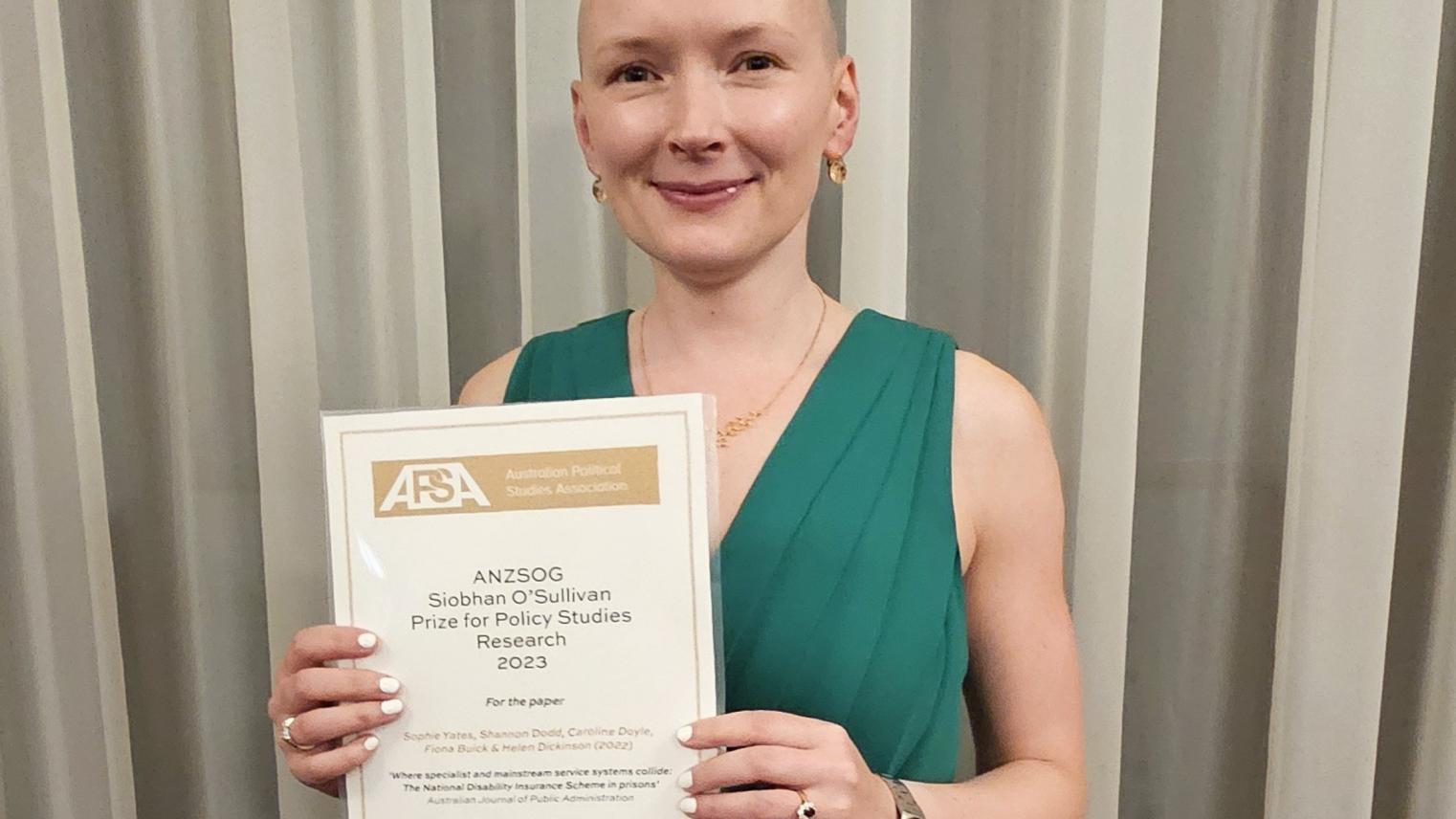Crawford’s Sophie Yates wins award for best public policy article

Dr Sophie Yates, a Research Fellow at the Crawford School of Public Policy, received the ANZSOG Siobhan O’Sullivan Prize for Policy Studies Research for her Australian Journal of Public Administration (AJPA) article “Where specialist and mainstream service systems collide: The National Disability Insurance Scheme in prisons.”
The prize is awarded to the best peer reviewed paper by a postgraduate or early career researcher with policy studies focus. It was co-authored with Shannon Dodd (ACU), and Caroline Doyle, Fiona Buick and Helen Dickinson (UNSW Canberra). Their work talks about how people with National Disability Insurance Scheme (NDIS) plans receive support if they end up in prison. There is currently not a lot of academic research on the topic, and Dr Yates and her colleagues wanted to uncover how the NDIS works within prison systems. The article is part of a wider project investigating the experiences of people with disability in Australian prisons.
The overrepresentation of individuals with disabilities in the prison system is a significant concern. Traditionally, prisons have struggled to effectively identify people with disabilities, particularly those with intellectual disability. Additionally, there may be a reluctance among individuals to disclose their disabilities in the punitive prison environment.
For the NDIS to work, it needs to interact with mainstream systems such as health, transport and criminal justice, and often the systems do not work well together. When people with NDIS plans go to prison, the justice system is supposed to provide for their day-to-day support needs. Unfortunately prisons overall do not provide enough disability services, and the difficult interface between the NDIS and prisons only increases the challenge of accessing support when people are leaving prison. Dr Yates says that the lack of support also influences recidivism as people can end up in prison because of their disability, and not having the help they need on the outside, can see them experience repeated incarceration.
She says that there are some pockets where prisons and criminal justice systems are doing better. Prisons that have disability-specific units can benefit inmates, and also start collaborative initiatives at the state level that facilitate matters between the justice system and the NDIS or help with advocacy for particular clients. But the reality is those are few and far between.
The article has already been cited by the Royal Commission into Violence, Abuse, Neglect and Exploitation of People with Disability. While the NDIS is always changing, the significant issues discussed by the Royal Commission show that problems with the NDIS/prisons interface persist. This award further highlights how important Dr Yates’ work is, adding valuable weight to what people already know and what people in the disability and criminal justice sectors have been saying for years. Dr Yates hopes to continue work in this area.
Beyond this specific article, Dr Yates maintains a larger focus, examining public administration and policy issues through a gender and inequality lens. She is currently working on a project about the citizen science app FrogID - her personal favourite is the banjo frog, scientifically known as Limnodynastes dumerilii. We highly recommend looking up how a number of them sound together, it is incredible.
From all of us at Crawford, congratulations on your award and all academic achievements, Dr Sophie Yates!